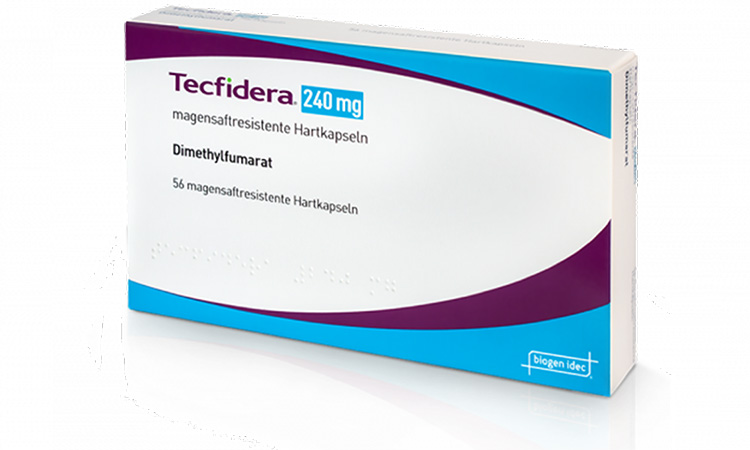Tecfidera (dimethyl fumarate) vs Tyruko (natalizumab-sztn)
Tecfidera (dimethyl fumarate) vs Tyruko (natalizumab-sztn)
Tecfidera (dimethyl fumarate) is an oral medication used in the treatment of relapsing forms of multiple sclerosis (MS), which works by reducing inflammation and protecting nerve cells from damage. On the other hand, Tysabri (natalizumab), known by the biosimilar name Tyruko (natalizumab-sztn), is an intravenous infusion therapy that targets the immune system more directly to prevent immune cells from entering the brain and spinal cord, potentially reducing the frequency of MS flare-ups. When deciding between the two, patients should consider factors such as the route of administration, the risk of side effects (including the rare but serious brain infection PML associated with Tysabri), and the frequency of treatment, as Tecfidera is taken twice daily while Tysabri is administered every four weeks.
Difference between Tecfidera and Tyruko
| Metric | Tecfidera (dimethyl fumarate) | Tyruko (natalizumab-sztn) |
|---|---|---|
| Generic name | Dimethyl fumarate | Natalizumab-sztn |
| Indications | Multiple sclerosis | Multiple sclerosis, Crohn's disease |
| Mechanism of action | Activates the Nrf2 pathway | Monoclonal antibody; inhibits leukocyte migration |
| Brand names | Tecfidera | Tyruko, Tysabri |
| Administrative route | Oral | Intravenous |
| Side effects | Flushing, gastrointestinal issues, others | Headache, fatigue, infusion reactions, others |
| Contraindications | Known hypersensitivity to dimethyl fumarate or its excipients | Known hypersensitivity to natalizumab or its excipients, PML |
| Drug class | Fumaric acid ester | Integrin receptor antagonist |
| Manufacturer | Biogen | Biogen |
Efficacy
Efficacy of Tecfidera (Dimethyl Fumarate) in Treating Multiple Sclerosis
Tecfidera (dimethyl fumarate) is an oral medication approved for the treatment of relapsing forms of multiple sclerosis (MS), including clinically isolated syndrome, relapsing-remitting disease, and active secondary progressive disease. Clinical trials have demonstrated that Tecfidera can reduce the frequency of MS relapses and slow the progression of disability. The DEFINE and CONFIRM studies, pivotal phase III clinical trials, showed that Tecfidera significantly reduced the annual relapse rate by approximately 50% compared to placebo. Additionally, these studies indicated a reduction in the number of new or enlarging brain lesions as seen on MRI scans, suggesting a decrease in disease activity.
Efficacy of Tyruko (Natalizumab-sztn) in Treating Multiple Sclerosis
Tyruko, the biosimilar of natalizumab, is a monoclonal antibody that is administered intravenously and is indicated for the treatment of relapsing forms of multiple sclerosis. Natalizumab, the reference product for Tyruko, has been shown to be highly effective in reducing the annual relapse rate and in slowing the progression of disability in patients with MS. The AFFIRM and SENTINEL studies, which were key in the approval of natalizumab, demonstrated that this medication reduced the annual relapse rate by up to 68% and the risk of disability progression by 42-54% compared to placebo. Tyruko, as a biosimilar, is expected to produce similar efficacy outcomes to natalizumab, based on the totality of evidence supporting biosimilarity.
Comparing Efficacy of Tecfidera and Tyruko
When comparing the efficacy of Tecfidera and Tyruko, both medications are effective options for the management of relapsing forms of MS. However, the choice between these therapies may depend on the individual patient's disease characteristics, treatment response, and tolerance to the medication. Tyruko (natalizumab-sztn), being a high-efficacy treatment, is often reserved for patients with highly active relapsing MS or those who have not responded adequately to other disease-modifying therapies. On the other hand, Tecfidera (dimethyl fumarate) offers the convenience of oral administration and may be preferred by patients who wish to avoid intravenous infusions.
Conclusion
In conclusion, both Tecfidera (dimethyl fumarate) and Tyruko (natalizumab-sztn) have shown substantial efficacy in the treatment of multiple sclerosis. The selection of either medication should be individualized, taking into account the patient's clinical profile, preferences, and the risk-benefit assessment of each treatment option. Ongoing monitoring and assessment of disease activity are essential to ensure optimal management of MS with these therapies.
Regulatory Agency Approvals
Tecfidera
-
European Medical Agency (EMA), European Union

-
Food and Drug Administration (FDA), USA

-
Health Canada

-
Therapeutic Goods Administration (TGA), Australia

-
Medsafe (NZ)

Tyruko
-
European Medical Agency (EMA), European Union

-
Food and Drug Administration (FDA), USA

Access Tecfidera or Tyruko today
If Tecfidera or Tyruko are not approved or available in your country (e.g. due to supply issues), you can access them via Everyone.org.
How it works

Make an enquiry
Choose the medicine you want to buy, answer a couple of questions, and upload your prescription to speed things up. We’ll get back to you within 24 hours.


Make an enquiry
Choose the medicine you want to buy, answer a couple of questions, and upload your prescription to speed things up. We’ll get back to you within 24 hours.


Breeze through the paperwork
We'll guide you through the required documents for importing unapproved medicine, ensuring you have all the necessary information.


Get a personalized quote
We’ll prepare a quote for you, including medicine costs and any shipping, administrative, or import fees that may apply.


Receive your medicine
Accept the quote and we’ll handle the rest - sourcing and safely delivering your medicine.

Some text on this page has been automatically generated. Speak to your physician before you start a new treatment or medication.
Let's talk
If you have any questions, call us or send us a message through WhatsApp or email:
Contact us




